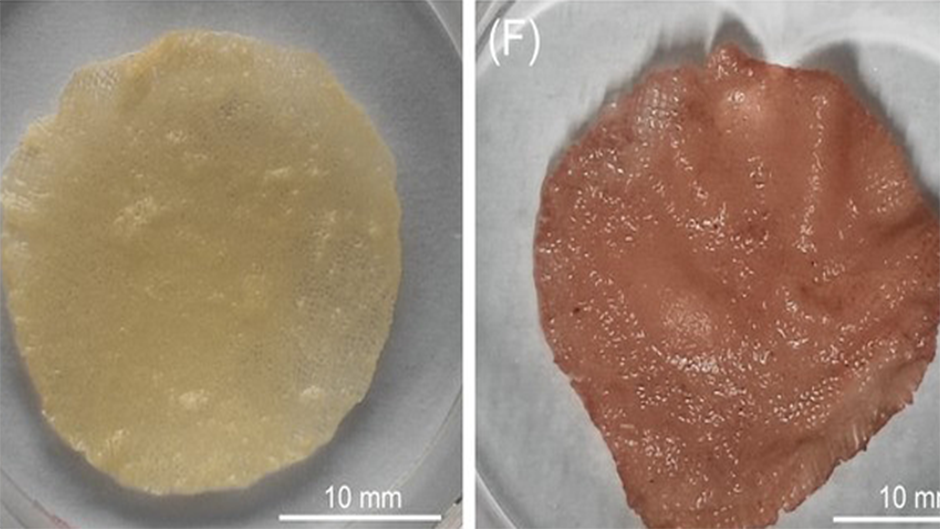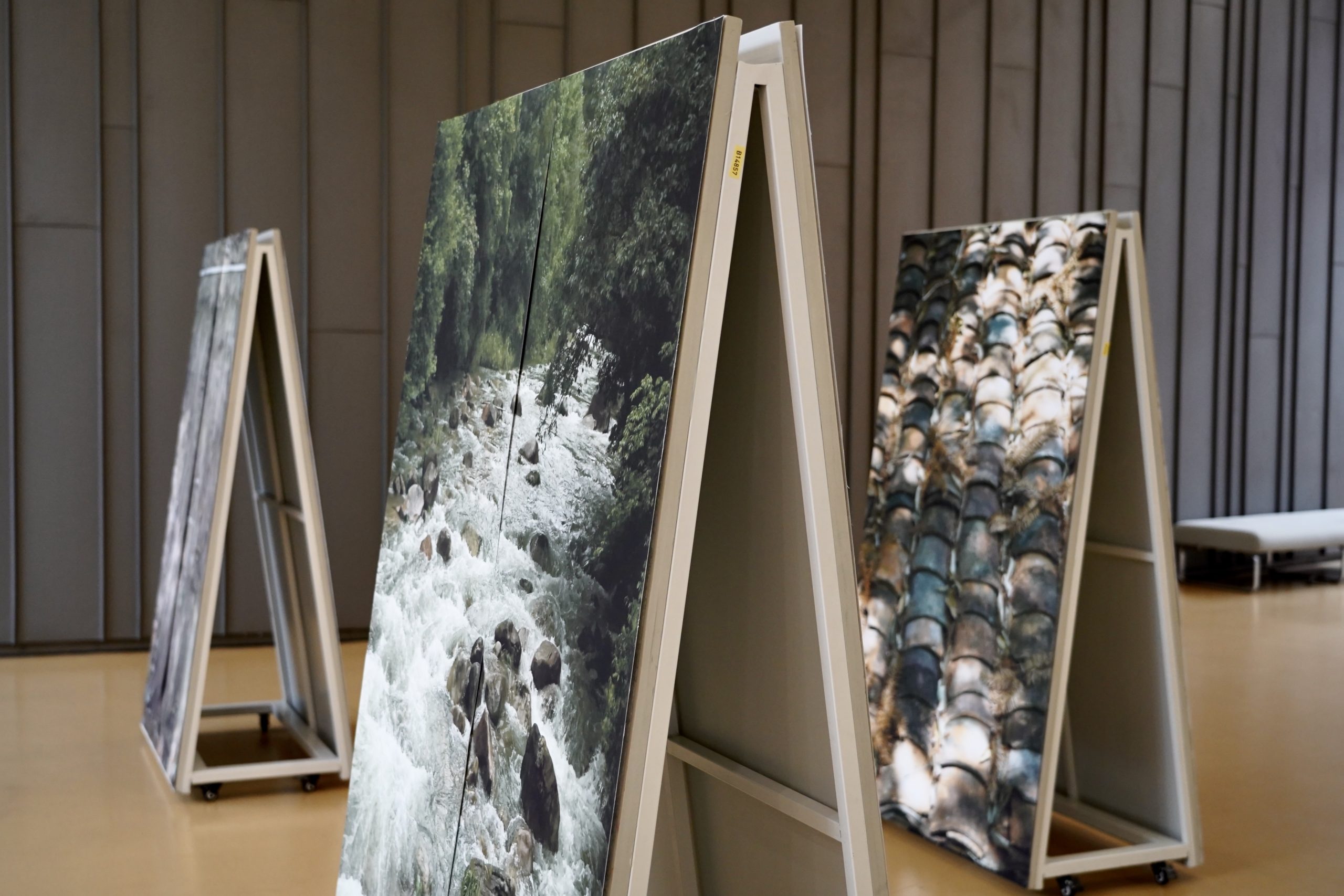This semester's Summer Undergraduate Research Fellowships (SURF) Poster Day displayed the work of 162 projects in a record year for numbers of projects and participants.
The SURF programme is a highlight for undergraduate students at Xi’an Jiaotong-Liverpool University every summer. The programme provides funds and academic guidance so that that undergraduates can conduct research. On SURF Poster Day every autumn semester, students’ projects are showcased, challenged and evaluated and awards given based on teacher and student votes.
This year's research projects touched on areas including artificial intelligence, biomedicine, language and culture, business development and architectural design. Some of the projects involved work with research institutes or industry.
Professor Fei Ma, Associate Vice-President of Research and Impact, says that a programme like SURF is of high significance to a research-led university like XJTLU:
“A firm grasp of theoretical knowledge is not enough. By participating in and completing SURF projects, you need to apply the knowledge you learned in class to practical situations to tackle challenges in society, industry and the world. In this process, you will develop your research capabilities and acquire new knowledge, which is the essence of research-led learning.”
What were the key takeaways this year from SURF? Let’s hear from this year’s winners.
2022 SURF Academic-Nominated Winner Project: Stem-cell Originated Dendrobium candidum Extract Shows Therapeutic Potential in Ovalbumin-induced Allergic Rhinitis Mouse
Supervisor: Dr Jie Zhang, XJTLU Wisdom Lake Academy of Pharmacy
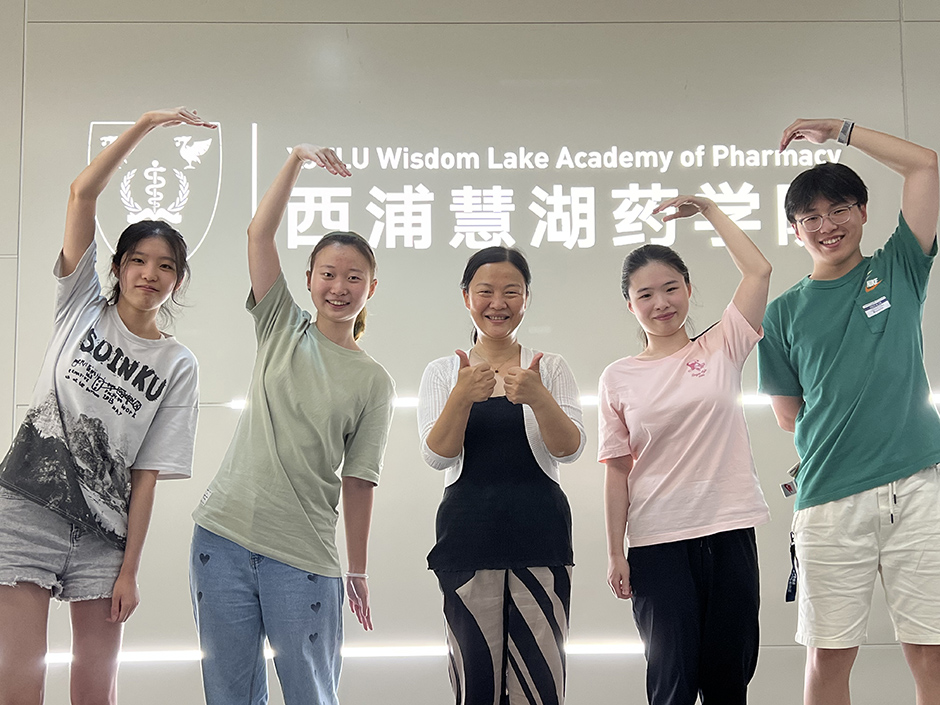
Q1: Why did you choose this project?
Ziyue Yuan, Year Four, BSc Biological Sciences: Allergic rhinitis is usually treated with drugs that often have side effects. This project is about how to treat the disease with Dendrobium candidum (DC), a traditional Chinese medicine (TCM). I used to study cancers, and one of the most cutting-edge directions in cancer treatment is immunotherapy. That’s why I’ve paid close attention to the immune system; an allergy is a natural imbalance that happens within the immune system. Through this project, I wanted to learn more about the reasons behind this imbalance, and the effect of DC on potentially restoring balance.
Jiangning Li, Year Four, BSc Bioinformatics: I chose this project for two reasons. Firstly, I’d like to research the gene therapy of multifactorial genetic diseases, and allergic rhinitis is considered as one of them. I suffer from allergic rhinitis myself and received TCM treatments in the past. I thought if we managed to prove that DC could treat the disease, we would have a treatment leading to lesser resistance and fewer side effects, benefitting a lot of people.
Secondly, I’m very interested in systems medicine and the treatment of complex diseases. Dr Zhang introduced to us to systems medicine starting from TCM before we started the project. Many Western drugs are developed to cure only one disease, but DC contains thousands of elements. So, our research was based on a systems-medicine point of view that targeted multiple elements and even multiple organs – a current trend in research.
Q2: Was there anything that stood out for you in the experience? What did you learn from it?
Xinyu Xie, Year Four, BSc Biological Sciences: In our experiment, mice inhaled rhinitis allergens. Those in the experimental group also inhaled atomised DC extract. After a period of time, we found that the symptoms of the mice in the experimental group were significantly eased compared with those that had not been treated. This indicates that DC may have had an effect.
However, when we took the mice’s blood serum to quantify the inflammatory substances in it, and then compared the data of all three groups, we didn’t find any statistical differences. The experiment didn’t yield the expected result. Sadly, we didn’t have more serum to run the assay again. Therefore, a large area of our poster discusses where an error might have occurred.
Ziyue Yuan: We figured that the error might be in the details of our experiment. Take blood sampling, for example: the inflammatory substances in blood serum have a relatively short half-life and are therefore difficult to measure. This requires researchers to be rigorous when conducting experiments. This made me realise the importance of handwork in scientific research.
Jiangning Li: I was really upset when we failed and thought that a lot of effort and money had been spent in vain. But Dr Zhang said that failures are common in biological research, so one of our biggest gains would be to accept them. We always know how the experiments that we do in the classroom will end, but real scientific research is to constantly explore the unknown. And the exploration does not end even in the face of failure.
2022 SURF Poster Group Winner Project of the Design School: The Reformation and the Revival of Shopping Mall: an Investigation on Changing Form of Physical Retail Space
Supervisor: Dr Yina Sima, XJTLU Design School
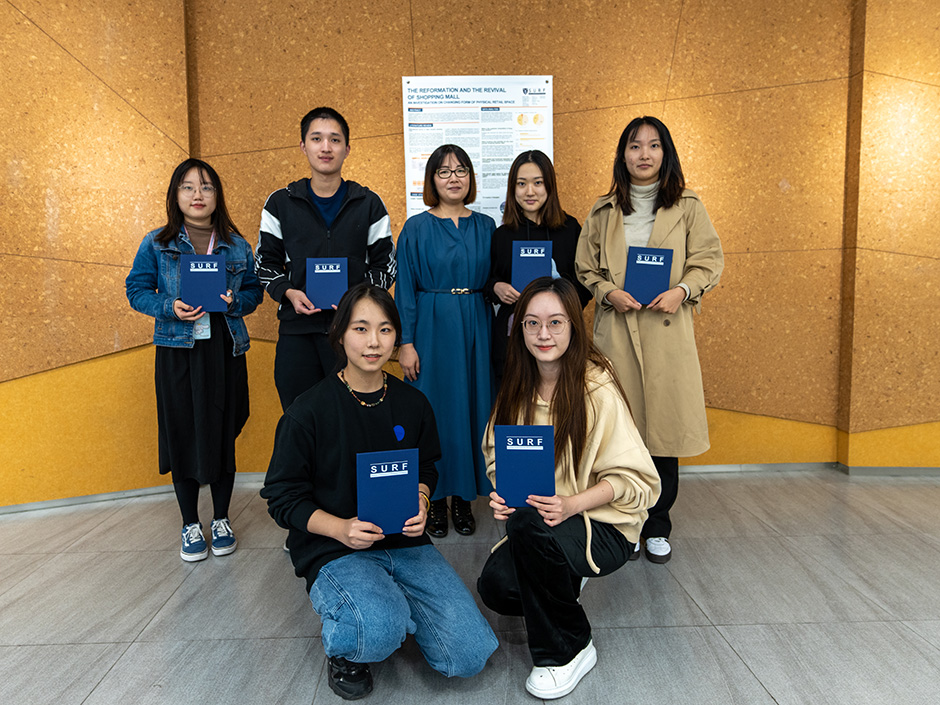
Q: Describe your SURF experience. Did you learn something or improve yourself?
Xinyu Yu, Year Four, BEng Urban Planning and Design: Our project is about the types and future form of shopping malls. By comparing two typical malls – the more traditional Longfor Paradise Walk in Suzhou and the more modern TX Huaihai mall in Shanghai, which is favoured by young people – we analysed and summarised the possible features of future shopping malls.
This was my first SURF experience. The time was too short, and I want to do more. Our research found that many old malls should be renovated due to urban development, which corresponds to regional allocation and urban sustainability, which I’m quite interested in. As a result of this project, I got to know more and dig deeper into the field of commercial real estate development.
Yize Lu, Year Three, BEng Urban Planning and Design: Urban planning is a highly comprehensive subject involving different types of knowledge. When I was doing research for this project, I read not only academic journals and papers but also news, articles on WeChat, even real estate developers’ promotional materials. I found that many catered to consumer behaviour. This enabled us to think outside the box and consider the connections between cities, malls and people. While I have thought about the renovation of malls before, my thoughts were never systematic. SURF gave me a chance to organise my thoughts and my existing knowledge while also learning something new about urban renewal.
Xining Zhao, Year Three, BEng Urban Planning and Design: Dr Sima took us to five malls in Suzhou and Shanghai to conduct field research. We used questionnaires to interview consumers, shop assistants and even management personnel. However, we were stopped by property management staff when we were researching a dining place. Before we could finish our interview, we had to go to the real estate office, property management office and other departments one by one to arrange permission; eventually we received an approval letter. Through this experience, we learned how to communicate with people and problem-solve, which are important skills for our future projects and work. This is also something we could never learn in the classroom.
Shengyuan Xu, Year Three, BEng Urban Planning and Design: My biggest gain would be improvements in English academic writing. I was responsible for the literature review, which meant I needed to read all types of materials and summarise their conclusions. I have learned how to write more logically and concisely. Dr Sima was of great help to us. She made our slide presentations and poster more professional with slight changes in structure and wording. She is our supervisor for a good reason.
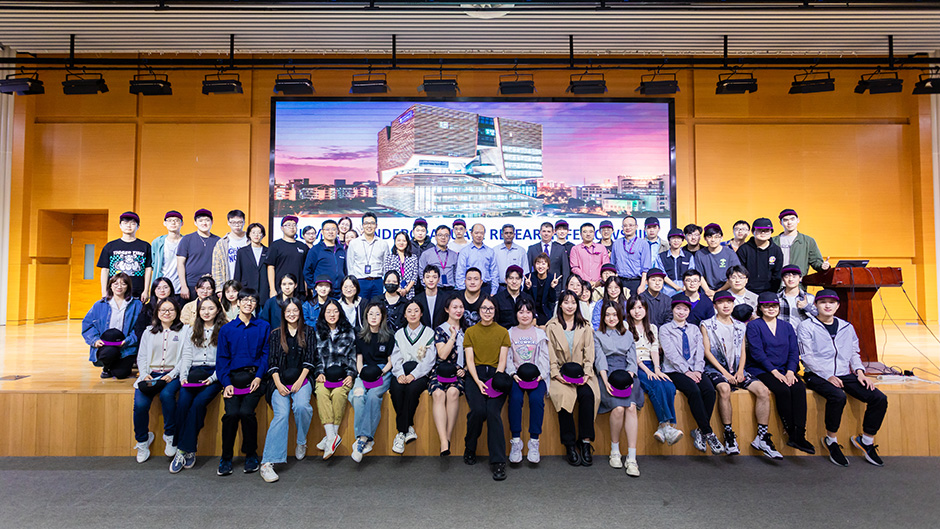
The winning projects from each academic cluster, as selected by the judging panel and students’ online voting, were:
Academic-Nominated Winner (and Academy of Pharmacy Group Winner): Jiangning Li, Xinyu Xie, Ziyue Yuan; Stem-cell Originated Dendrobium Candidum Extract Shows Therapeutic Potential in Ovalbumin-induced Allergic Rhinitis Mouse; supervised by Dr Jie Zhang
Design School Group Winner (and Student-Nominated Winner 2nd Prize): Xinyu Yu, Xining Zhao, Sihan Fang, Hongjie Pan, Xinyi Lin, Shengyuan Xu; The Reformation and the Revival of Shopping Centre: an Investigation on Changing Form of Physical Retail Space; supervised by Dr Yina Sima
International Business School Suzhou (IBSS) Group Winner (Student-Nominated Winner 3rd Prize): Yuhan Wu, Hongsen Zhao, Haibei Qu, Li Zhuang, Chang Liu, Xiao Liu; Comparison of School Admission Mechanisms: an Experimental Study; supervised by Dr Wenting Zhou
School of Humanities and Social Sciences Group Winner: Tong Li, Jiale Guo; Developing a Knowledge-based Academic Vocabulary List; supervised by Chen Chen
XJTLU Entrepreneur College (Taicang) Group Winner: Chenglong Xia, Jiachen Pan, Lixiang Fang, Xinchi Shi, Zhaotian Ren, Peizheng Zhao; Design, Construction, and Improvement of High-precision Measurement System; supervised by Dr Chenguang Liu
School of Languages Group Winner: Manru Zhang, Jufan Zhou, Yi Wang, Jiarui Xie, Adlensius Fransiskus Djunaedi, Jiaying Zou; Strategy Use in Second Language Vocabulary Acquisition and Its Relationship with Vocabulary Levels; supervised by Dr Peiling Xing
School of Mathematics and Physics Group Winner: Zhikai Wang, Yuhan Hou, Yuqin Wang; Micromagnetic Simulations of Skyrmions Based on GPU-Accelerated MuMax3; supervised by Dr Hao Yu
School of Science Group Winner: Yilei Wu, Yikai Dong, Zhongzheng Mao, Zhichao Zhang, Jiayi Chen, Yushan Zou; Branched Subclonal Evolution Drives the Metastases of Liver-Colonized Colorectal Cancer in a Mouse Model; supervised by Dr Xiaowei Jiang
School of Advanced Technology Group Winners:
- Muyun Li, Wei Liao, Jianghan Chen, Lenghan Zhu, Zichuan Yang, Jiayi Liu; Handwritten Mathematical Formula Recognition: via an End-to-End and Attention-Based Deep Learning Approach; supervised by Dr Qiufeng Wang
- Mingzirui Wu, Suqi Zhang, Dongheng Lin, Qiaochu Zhao, Sitang Gong, Doyeon Kim; Novel Convolutional Embeddings for Domain Adaptation in Medical Segmentation; supervised by Dr Erick Purwanto
- Mingze Wu, Ruixiang Zhao, Ziyue Zhao, Xuansheng Xia, Wenxuan Zheng, Kexiang Shuai: Selection and Manipulation Techniques for Object Observation in Immersive Virtual Reality; supervised by Dr Yue Li
- Shuaiqi Li, Zixiang Pu, Ruocong Wang, Wenrui Gou, Chenyu Wang, Chenyu Dong; Lattice-based Structural Lightweight Design and Its Integrated Evaluation; supervised by Dr Min Chen
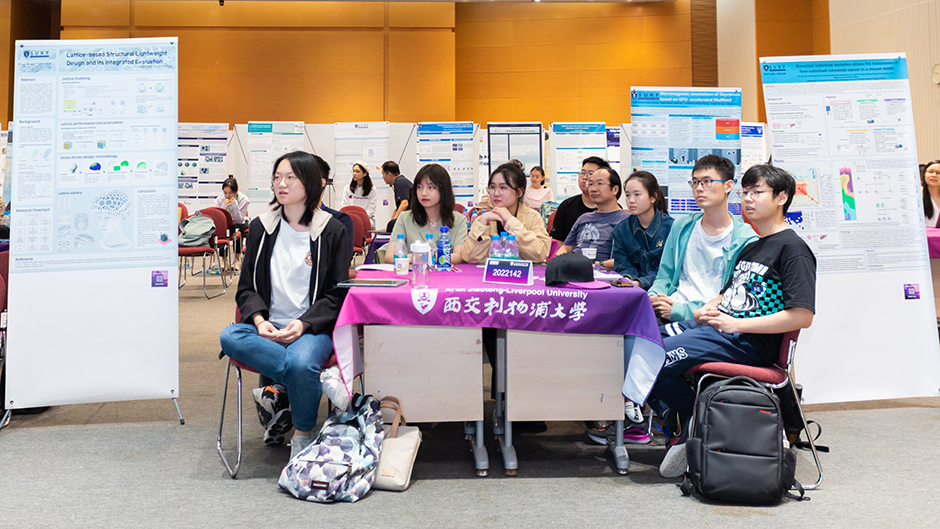
Student-Nominated Winners:
- First Prize: Xinjie Lian, Yiling Liu, Qingchuan Zhao, Jinghao Li, Qi Qi, Xinyu Liang; An Investment Strategy Based on the Arrival Process of Abnormal Accounting Ratios; supervised by Dr Zhehao Zhang, School of Mathematics and Physics
- Second Prize: Xijia Sha, Yuying Song, Mengjuan Li, Yiyang Shen, Lei Hou, Bolun Ding, Commercial Banks Volatility Prediction Based on Machine Learning; supervised by Dr Xiaoming Ding; International Business School Suzhou (IBSS)
- Third Prize: Jieying Zhou, Yunle Xu, Lu Long, Yuxuan Han, Yifei Sun, Shangyou Wu; Participating in Art Workshops to Reduce Stress and Restore Psychological Harmony; supervised by Yuan Yuan, Chinese Cultural Teaching Centre
- Third Prize: Tiantong Tu, Wen Ge, Bingyan Shen, Ruipeng Zhu, Yumeng Cao, Keyan Sun; Quantitative Investment Strategy Based on Financial Indicators; supervised by Dr Jin Jiang, International Business School Suzhou (IBSS)
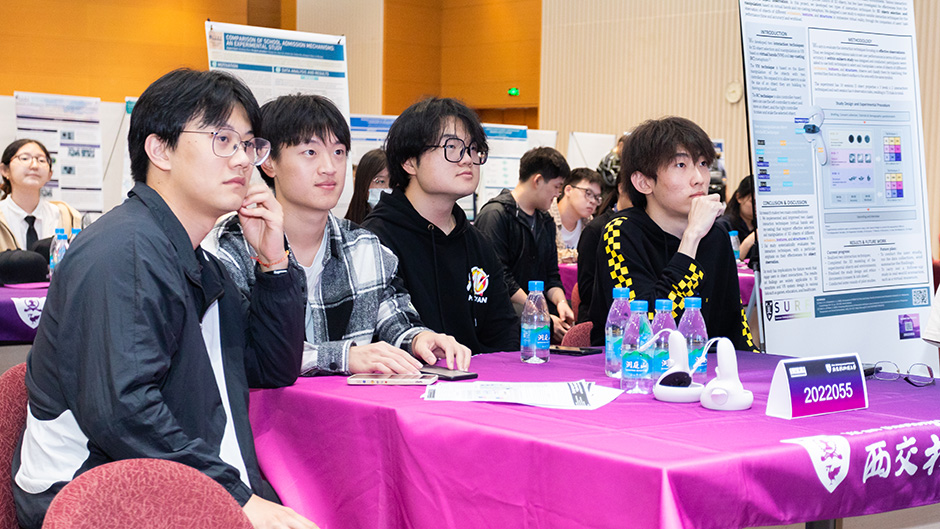
By Qiuchen Hu and Liu He
Translated by Xiangyin Han
Edited by Tamara Kaup


